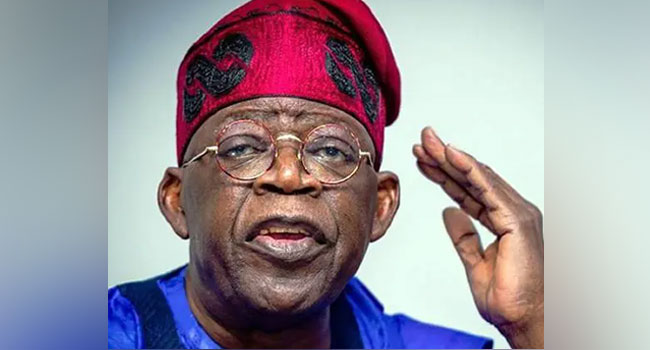
The Federal Government has urged States in the country to deepen fiscal transparency and accountability in Public Financial Management System to improve good fiscal governance at the sub-national level.
This call was made on Wednesday by Mr Aliyu Ahmed, Permanent Secretary (Finance), Federal Ministry of Finance, Budget and National Planning who doubles as the Chairman National Steering Committee (NSC) of the States’ Fiscal Transparency Accountability and Sustainability (SFTAS) Programme for Results domiciled in the Home Finance Department of the Ministry as the Programme Coordination Unit.
Membership of the NSC which provides strategic guidance for the programme comprises the following: Federal Ministry of Finance, Budget and National Planning, Home Finance Department as the Program Coordination Unit (PCU); Federal Ministry of Finance, International Economic Relations Department (IERD); Debt Management Office (DMO); Federal Ministry of Justice, Open Government Partnership (OGP Secretariat); Public Service Institute of Nigeria (PSIN); National Bureau of Statistics (NBS); Office of the Auditor General for the Federation (OAuGF); Nigeria Governors’ Forum (NGF); Six State Commissioners of Finance (representing the six geopolitical zones); Joint Tax Board; and the Statistics Department of the Central Bank of Nigeria.
Mr. Ahmed who spoke yesterday at the opening ceremony of the 2nd Meeting of the National Steering Committee of the SFTAS Programme for Results noted that States in the Federation have effectively bought in into the SFTAS Programme for Results with all the 36 States of the Federation participating.
The NSC Chair explained that the programme aims to instill a common set of fiscal behaviour and standards in the States and encourage widespread adoption of good practices in fiscal and public financial management across the States while respecting their fiscal autonomy; strengthen fiscal transparency by improving overall budget transparency and accountability to help build trust in government, enhance the monitoring of fiscal risks and accountability in public resource management; improve accountability through deployment of such measures as BVN in the Payroll Systems and implementation of Treasury Single Accounts to minimize leakages in the system and promote efficiency in resource management.
According to Ahmed, the SFTAS Programme is also meant to improve procurement practices to enhance value for money and reduce opportunities for corruption and misuse of public resources, thereby increasing efficiency of public expenditure; strengthen fiscal sustainability through increased efficiency in spending, strengthen revenue mobilization and debt sustainability to prevent further fiscal crises and enhance the fiscal space for productive spending aimed at supporting growth and public service delivery; promote comparison as well as uniform review of annual budgets and financial statements using uniform and internationally acceptable standards and to free some resources for effective response to COVID -19 Pandemic.
The Permanent Secretary and Chairman SFTAS NSC expressed optimism on the programme sustainability and its impact on fiscal governance given the remarkable commitment shown by all Stakeholders especially the benefitting States urging them to demonstrate more commitment by providing budgetary resources to sustain the programme beyond its exit date.
In her contribution, the Secretary, Joint Tax Board (JTB) Mrs. Aishat Obomeghie, Member of the Committee advised States to take bold and courageous steps in automating their Internally Generated Revenue (IGR) collection systems so as to increase revenue inflows to the State consolidated Revenue Account. She disclosed that at the moment, only the Federal Inland Revenue Service (FIRS) and 17 States out of the 36 States of the Federation have fully automated their IGR. According to Mrs. Obomeghie the States that have so far automated their IGR include the following: Abia, Bauchi, Benue, Borno, Cross River, Edo, Ekiti, Jigawa, Kaduna, Kano, Kogi, Kwara, Lagos, Nasarawa, Ogun, Ondo and Taraba States.
On her part, the Director General, Debt Management Office, Ms. Patience Oniha observed that more than two-thirds of States now submit on timely basis comprehensive quarterly debt reports to the DMO on debt stock and debt servicing noting that two- thirds of States have passed public debt management laws and /or fiscal responsibility legislation which mirrors the Federal Government’s Fiscal Responsibility Act.
The DG, DMO further disclosed that the States have also established fiscal and debt rules as well as limits and responsibilities for contracting States debt with functional State Debt Departments. “For both 2018 and 2019, half of all States achieved debt-to-revenue ratios below the debt sustainability threshold set by the Federal Government”.
The Chairman Commissioners of Finance Forum and Benue State Commissioner of Finance Dr. David Olofu who spoke on behalf of his colleagues commended the Federal government’s fiscal intervention which bailed out most States of the Federation from financial distress especially during the period of economic recession and the recent COVID-19 Pandemic which overstretched the lean resources of the States.
Dr. Olofu pledged States readiness to continue with the SFTAS Programme noting that thus far, the institutionalization of the programme has positively impacted on fiscal governance and strengthened transparency and accountability. However, the Chairman Commissioners of Finance Forum urged the Federal Government to redouble the Performance for Results grant from the initial $750m to $1.5m to enable the States consolidate the fiscal reforms and ensure programme sustainability.




